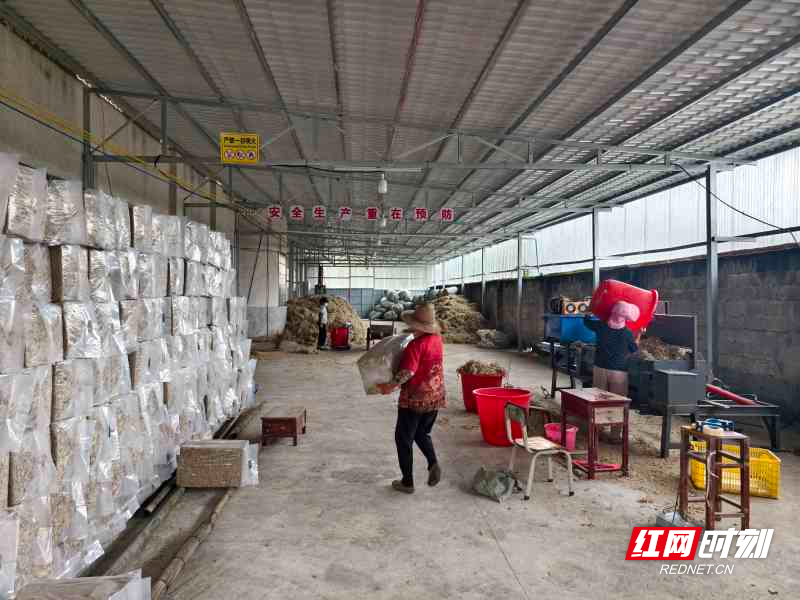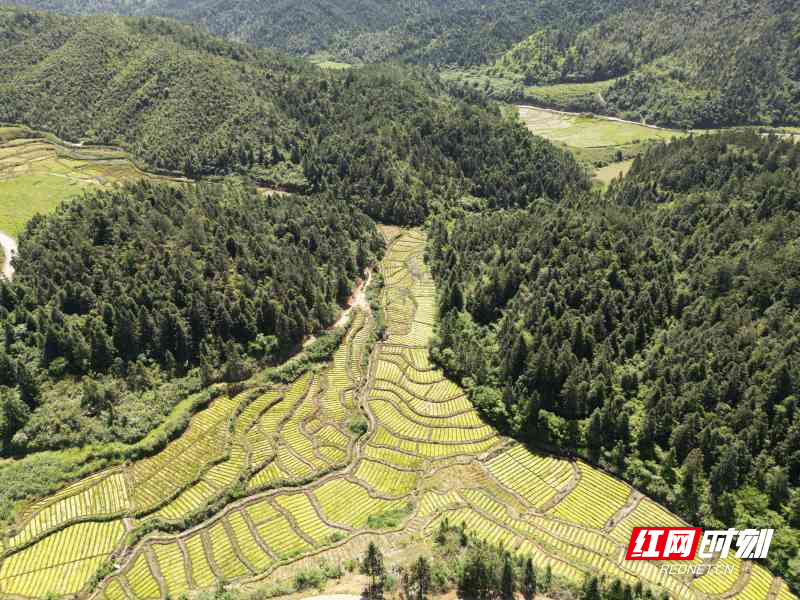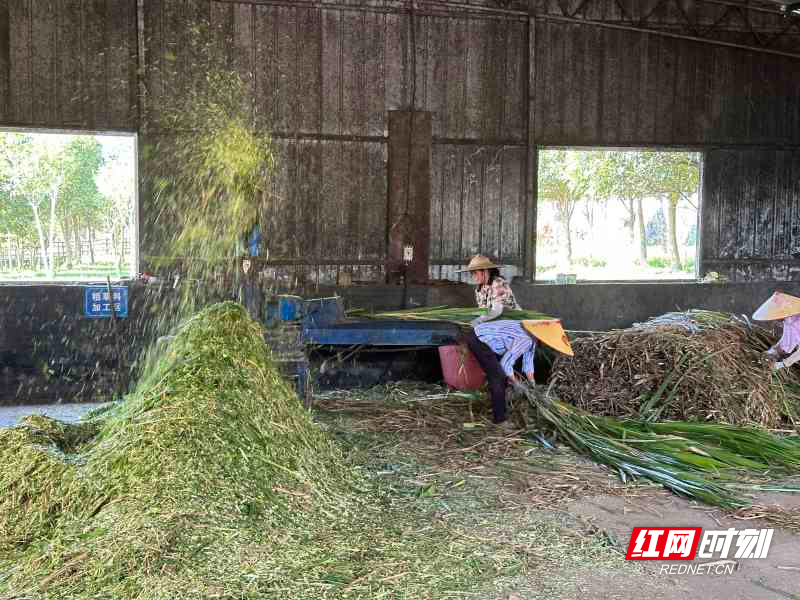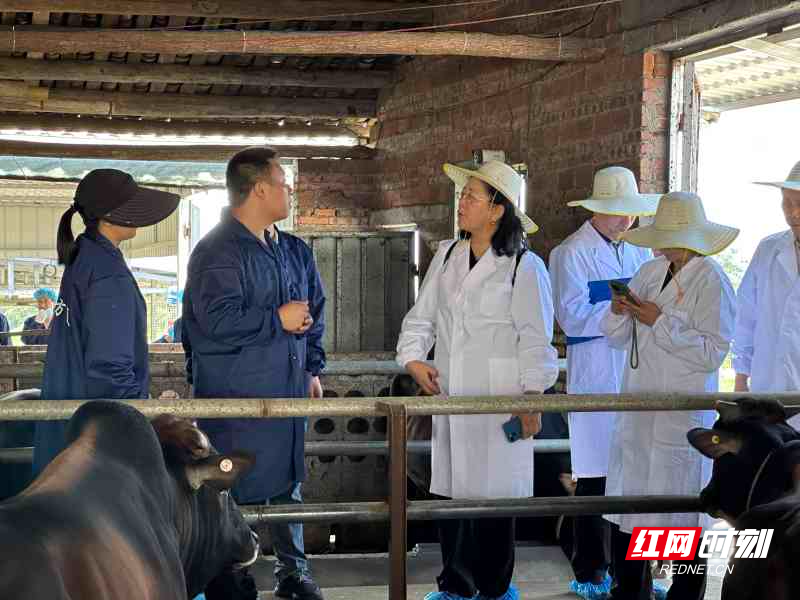Jingpo town sees thriving planting and breeding industries
2024-10-18
Recently, Yuan Quyang grazed over 400 Xiangnan yellow cattle in a natural grassland of Gutang village, Jingpo town, Rucheng county. This is an idyllic landscape with yellow cattle grazing on green mountain pastures.

Circular farming
“We feed cattle on forage made from green silage like corn stalks and straws. This can not only reduce the odor of cattle houses, but also improve the quality of beef cattle.”
Huada Livestock Farmers’ Professional Cooperative was established eight years ago.
For many years, the cooperative has adhered to circular farming, fully utilizing regenerative resources in agricultural production to build a diversified industrial system.

This effectively reduces the use of fertilizers and pesticides, and enhances the risk resistance of agriculture.
The integrated development of the planting and breeding industries has promoted industrial development.
The cooperative raised 860 Xiangnan yellow cattle, planted 1,200 mu (80 hectares) of rice and 410 mu (27.33 hectares) of chili peppers, and improved 3,000 mu (200 hectares) of grazing grassland.

It has also established a 3,000-square-meter organic fertilizer composting plant and a 7.67-mu (5,113.33 square meters) silage feed factory, producing 3,600 tons of green silage feeds annually.
This circular agricultural economy not only protects the local ecological environment, but also brings an average annual income of over 1 million yuan to the cooperative.
With the expansion of breeding scale and the improvement of beef cattle quality, Yuan Quyang established a company engaged in ecological breeding and organic vegetable cultivation, opening up a new path of “industrial linkage plus circular farming”.

The Xiangnan cattle raised on the farm has passed the appraisal of the National Livestock and Poultry Genetic Resources Committee in early September.
Ecological planting
A vast field of water mosses grow well in Longhu Yao village of Jingpo town, Rucheng county.
“Longhu Yao Village is located in a drinking water source protection area. Given the necessity of balance environmental protection and economic development, it is the best to plant water mosses.” Chen Guijuan, secretary of the Party Committee of Jingpo Town added that to ensure the safety of drinking water for the whole county, the traditional path of developing traditional agricultural industries such as rice and aquaculture in the reservoir area was no longer feasible, which called for industrial transformation urgently.

Therefore, the town organized village cadres to visit Guangdong, Jiangxi and other places, and introduced environment-friendly industries based on local conditions.
The benefits of ecological water moss planting industry are particularly significant.
The growth of water moss requires no fertilization or pesticides throughout the entire process, but also purifies water quality, making it very suitable in reservoir areas.
The town introduced Hunan Wanrong Dakang Agricultural Technology Company and developed the water moss industry in cold rot fields, low-yield rice fields and abandoned land in Longhu village and Baiyutang natural village.

“Water moss features long water retention time and breathability, and is a mid-to-high-end raw material in the fields of precious flower cultivation, medical treatment, food transportation, and maternal and child products,” said an executive of the company.
This year, the company planted another 1,000 mu (66.67 hectares) of water mosses and harvested them once a year, with an expected annual output of 800 to 1,000 tons of dry water moss. The whole harvesting and processing process requires much labor, attracting over 120 villagers from the surrounding area to work nearby.
In addition, the water quality of Longhudong Reservoir meets the national first-class drinking water standard throughout the year, which proves the environmental protection, feasibility and effectiveness of developing the water moss industry in the reservoir area.
Planting water moss not only protects the ecological environment of water sources, but also effectively solves the problem of idle farmland, promotes production and increases farmers’ income.
Chinese source: rednet




